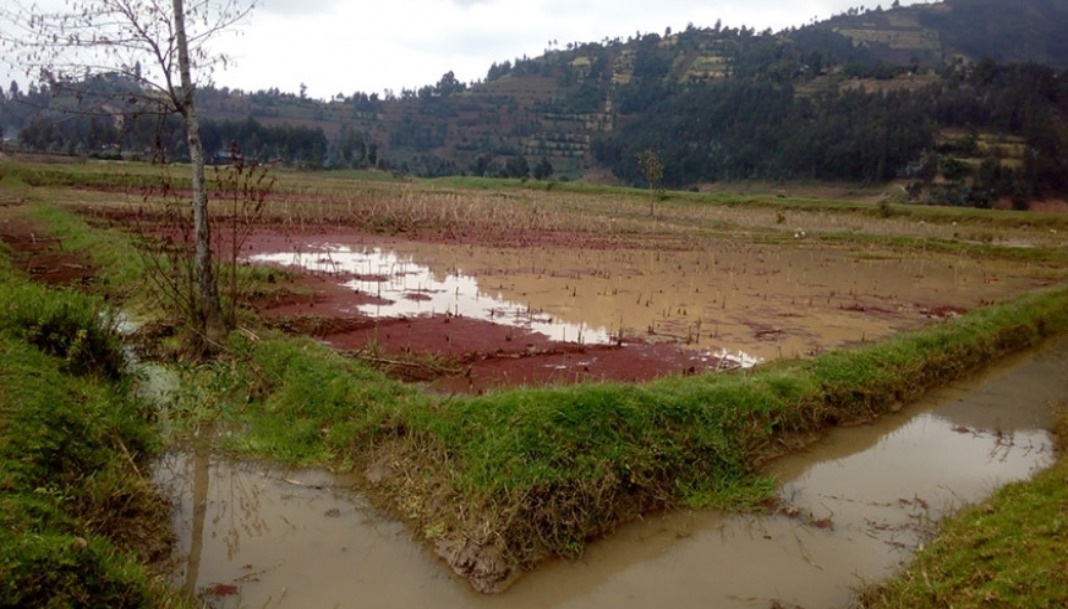Farmers who were severely affected by floods in Kirehe District that destroyed crops in 2019 will begin receiving support from Food and Agriculture Organization of the United Nations (FAO) in collaboration with the government.
The disasters that struck the district late last year, submerged more than 50 hectares of rice fields and 3,954 hectares of cropland while about 90 domestic animals died.
Currently the majority of the people of Kirehe depend on casual agricultural work for households’ own subsistence farming.
At the moment the district has been undergoing a prolonged drought and the recent heavy rains compounded the risk of unprecedented run-offs that resulted into flooding and landslides.
Through the project “Emergency support to rehabilitate and enhance agricultural production capacities of farmers affected by floods in Kirehe District”, affected households will receive inputs such as certified seeds and fertilizers to recommence their crop production, and rehabilitate the irrigation infrastructures destroyed by the sediments depositions in the lowlands.
Also, 3 000 farmers will benefit from the cash for work transfer meant to support their livelihood needs for the entire agricultural season, and about 250 Hectares of cropland will be rehabilitated, according to FAO.
“Advance planning to deal with serious floods can significantly reduce the social and economic impacts of disasters. In addition, prompt action, can effectively reduce the potential effects of floods,” said Martin Ager, Land and Water Officer for FAO.
He said that in order to mitigate drastic effects of floods, the project will construct progressive terraces with ditches, plant agroforestry and fodder grasses, and install water retention ponds with dam sheet.
“In the same way, natural drainage canal with grass to fix soil will be constructed for preparedness and response to future shocks,” said Ager.
The project operationalization is an important milestone that spearhead the other initiatives set by the District aimed to mitigate the negative impacts of floods and mudslides resulting from recent adverse climatic events by promoting prompt resumption of agricultural production.
“This emergency intervention will enable farmers to rebuild their farming systems thus go back to their normal lives,” said Florentine Uwimpuhwe, Director of Corporate Services at Kirehe District.
The fact that farmers will be working on their own field for a wage, it will motivate them to restore their livelihoods quickly, she said.
“This support comes at a right time as it will compliment our budget for the intervention”, said Uwimpuhwe.
During implementation, it will build farmers’ capacities for sustainable management of future such disasters in the district, with 50 Facilitators and 3 000 farmer facilitators and technician farmers trained in preparedness and response to future shocks.
According to ND-GAIN index of a country’s vulnerability to climate change (2013), Rwanda ranks 131 out of 178 countries.
Its rank of 131th on vulnerability means that it is highly vulnerable to climate change effects. Floods and landslides have been among the major disasters that have great negative impact on food security, health, environment and infrastructures in different zones of the country.


